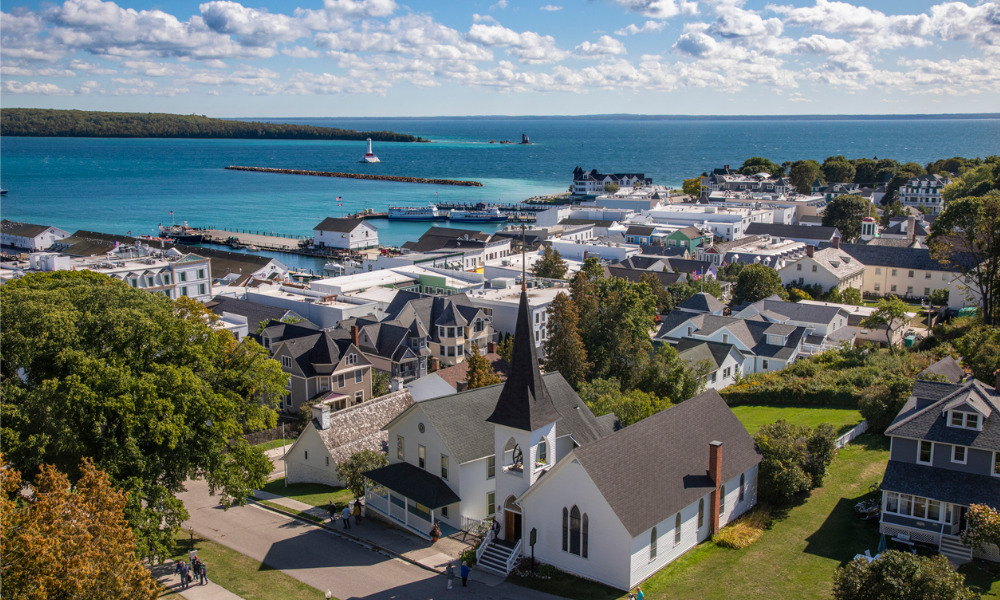Finding affordable property for FTBs much harder in coastal areas

First-time buyer affordability in and around coastal towns has rapidly declined in more than half the UK’s top 10 areas, according to research by Rightmove.
A typical home for a first-time buyer is now 7.2 times the average salary, compared to 6.9 times in 2019. This has had a knock-on effect on the amounts needed to place a 10% deposit for a property, having risen by 17% to £22,409 for an average home.
Moreover, the average monthly mortgage payment for first-time buyers with a 10% deposit has shot up by 39% since 2019.
In Adur, a South Wessex district on the south coast of England, the average asking prices are 11.6 times the average salary for the area, compared with 8.7 times in 2019, before COVID.
In Chichester, also on the south coast, the average asking prices for homes are 10.3 times the average salary compared with 8.5 times three years ago.
In West Devon, just off the south west coast, average asking prices are 9.1 times the average salary, while in Cornwall it is 9.7 compared with 8.1 in 2019.
Read more: What will fill the void left by the Help to Buy scheme?
The premium buyers are having to spend on properties in and around coastal areas reflects the lingering impact of the COVID pandemic, according to Rightmove director, Tim Bannister.
Quoted in the Daily Mail, he said it was much harder for first-time buyers in these areas as prices have risen considerably, especially following six consecutive interest rate rises and the fact that average local salaries have failed to keep pace.
However, this had not dissuaded would-be first-time buyers, he added.
“Though demand for first-time buyer homes has expectedly eased from the heady levels of last year, it’s still significantly higher than it was back in 2019, suggesting many first-time buyers are factoring in rate rises into their own affordability,” he told the Mail.
Conversely, affordability during the pandemic improved mostly in London and in traditional commuter areas, albeit slightly. This was due to local salaries increasing at a faster pace than house prices.
In the London borough of Hackney, the asking price to income ratio is 13.3, down from 14.1 three years ago, although the average price for a home is still an eye-watering £513,972, compared with £312,180 in Adur.
Lambeth is similarly expensive, although affordability has also improved, as average asking prices are 11.8 times the average salary for the area, down from 13.3 times in 2019.
Rightmove gathered the data based on an average individual first-time buyer who could save up a 10% deposit for an average property with two bedrooms or less.
To assess local affordability, the local salary data was adjusted from the Office for National Statistics (ONS) up to May 2022, according to the average national earnings increase.
Read more: Affordability hits rock bottom – for how long?
Kate Eales, of estate agents Strutt & Parker, told the Mail that affordability “is a long-standing barrier for first-time buyers looking at homeownership”.
She pointed out that the supply of new properties coming to the market had not kept up with demand, adding that there was also a lack of suitable housing coming through for first-time buyers.
“A decade of mostly upward rents has put further pressure on saving for a deposit, and a rising market means that the goalposts have kept moving. All this has been exacerbated in recent months with rising interest rates, making mortgages more expensive, while inflation is driving down real income,” she said.
“It’s no surprise affordability will be felt most in coastal areas and around major urban centres. These locations are in high demand, and first-time buyers will be competing with second steppers and downsizers, who are likely to be in a stronger financial position to secure a property. But those who are able to take their first step on the housing ladder largely remain undeterred.”
Mark Howell, of Sussex-based estate agents, Michael Jones & Company, said he had noted an increase in gifted deposits and the average age of first-time buyers, suggesting that they were taking longer to acquire their deposits because of high house prices.
He added: “Salary levels have also slowed down in relation to house prices in the last few months, creating a wider gap between wages and affordability.”



